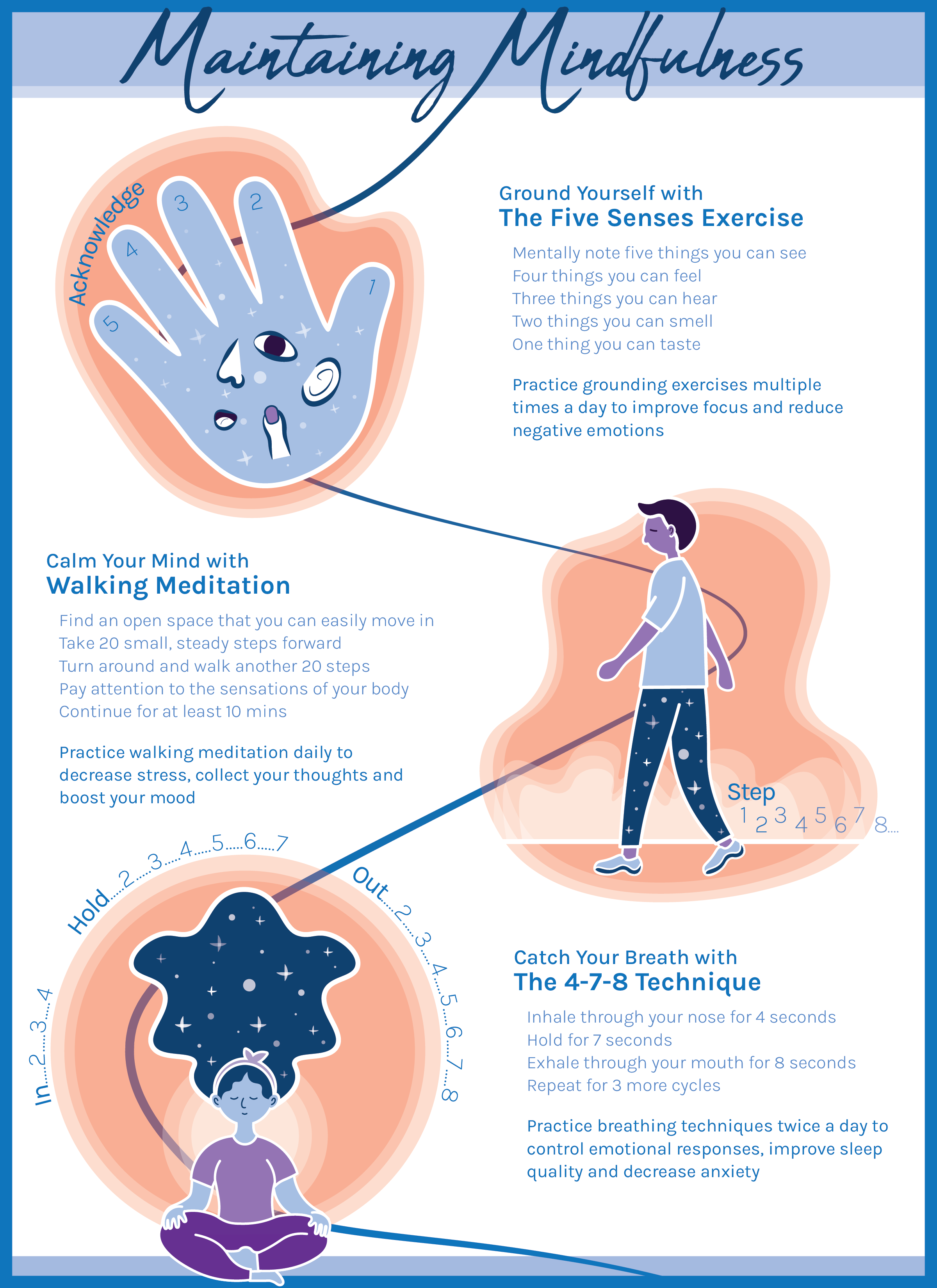By Karen Battaglia, Psy.D., Licensed Psychologist
According to the World Health Organization, “mental health is the foundation for the well-being and effective functioning of individuals.” Our mental health affects our functioning in all facets of life, including our professional and personal lives, our relationships with friends and family, and our physical state. The brain-body connection is powerful and there is a great deal of evidence to suggest that poor mental health increases the risk for long-lasting physical conditions such as heart disease, Type II Diabetes, Stroke, and Cancer. Mental health, like physical health, can change over time and is impacted by short-term and long-term stressors. Maintaining good mental health is an ongoing commitment, but there are actions you can take that will help.
Nutrition - Research has established a correlation between certain nutrients and the development of anxiety and depression. Good mental health can be promoted by a diet rich in high-quality proteins, Omega 3 fatty acids, whole-grain carbohydrates, fruits, and vegetables. Your diet does not need to be perfect to enjoy the benefits of better nutrition. Making small changes can go a long way. For example, start by introducing a fruit or vegetable at one meal a day. Challenge yourself to do that every day and go from there.
Exercise - There is a great deal of scientific support for the positive impact exercise has on mood. Just 30 minutes of exercise a few days a week can improve mood and reduce symptoms of anxiety and depression. This does not mean spending hours at the gym unless that is what you love to do. Walk the dog, take a bike ride, or play a friendly game of basketball with friends and family. Spending time outside, even without exercise, has been shown to improve mood.
Sleep - According to the Sleep Institute, poor sleep is associated with higher rates of mental illness, such as depression and anxiety. Brain activity fluctuates during sleep, so it is important to give your brain the opportunity to move through these stages.
Nurturing Relationships - Human beings are social creatures and do better when they have an emotional connection to others. It is easy to lose contact with friends due to the demand of the workload and home. Commit to your relationships and carve out small bits of time to stay connected to others.
Setting Boundaries - it is impossible to be everything for everyone. Give grace to yourself and say no when you can.
Get Help - About 1 in 5 Americans will experience a mental health issue at some point in their life and there should be no shame in getting treatment for a mental illness. Often mental health is intertwined with mental illness, but they are different things. A person who has a mental illness can maintain good mental health by following treatment recommendations and employing the suggestions above.

